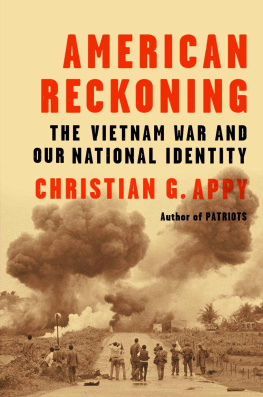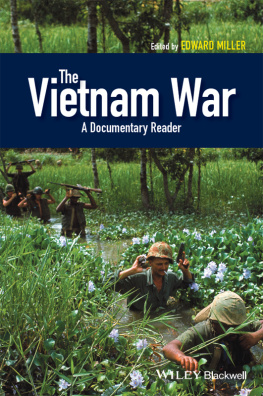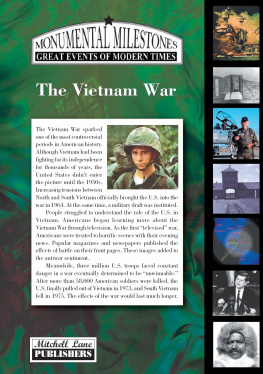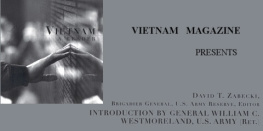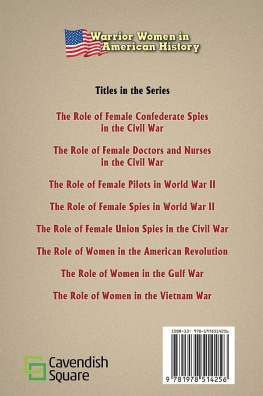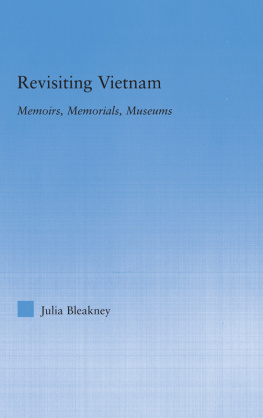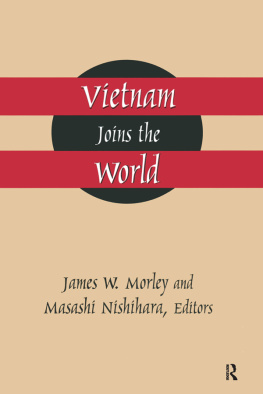A LSO BY C HRISTIAN G. A PPY
Patriots: The Vietnam War Remembered from All Sides
Working-Class War: American Combat Soldiers and Vietnam
Cold War Constructions: The Political Culture of United States Imperialism, 19451966
VIKING
Published by the Penguin Group
Penguin Group (USA) LLC
375 Hudson Street
New York, New York 10014

USA | Canada | UK | Ireland | Australia | New Zealand | India | South Africa | China
penguin.com
A Penguin Random House Company
First published by Viking Penguin, a member of Penguin Group (USA) LLC, 2015
Copyright 2015 by Christian G. Appy
Penguin supports copyright. Copyright fuels creativity, encourages diverse voices, promotes free speech, and creates a vibrant culture. Thank you for buying an authorized edition of this book and for complying with copyright laws by not reproducing, scanning, or distributing any part of it in any form without permission. You are supporting writers and allowing Penguin to continue to publish books for every reader.
Grateful acknowledgment is made for permission to reprint an excerpt from Born in the U.S.A. by Bruce Springsteen. Copyright 1984 Bruce Springsteen (ASCAP). Reprinted by permission. International copyright secured. All rights reserved.
ISBN 978-0-698-19155-6
Version_1
CONTENTS
For Katherine
INTRODUCTION
Who Are We?
till we got here. We thought we were something else.
Robert Stone, Dog Soldiers (1974)
George Evans recalled. He grew up in Pittsburgh in the 1950s. Starting at age six, before and after school, he helped his father deliver blocks of ice to poor and working-class people who could not afford the shiny new refrigerators advertised in all the magazines. George understood that the American Dream was beyond the grasp of his parents and most of their friends and neighbors. He was a streetwise kid. He knew life was difficult and the future uncertain.
But there was one thing George trusted completelyhis nations military power and the good that it did. With all his heart he believed the United States was on the side of justice and freedom and all our wars were noble. Despite personal hardships, you could always count on Americans to be the good guys, and always victorious. It was simply unimaginable that the United States might betray that faith.
I was raised in a family and neighborhood of extreme patriots, George explains. My father was the commander of his VFW post and I got to go to the club and hang out with the veterans. I was their little mascot. He especially looked forward to Flag Day, when he would help the World War II vets decorate the graves in a military cemetery. Imagine how beautiful it looked to a kid to see hundreds of graves in a geometric pattern, all with shining bronze plates and flags waving in the wind. You just cant exaggerate the pull of the military on kids from neighborhoods like mine. Everything youd seen and heard your whole life made it feel inevitable and right.
But Georges faith in Americas global goodness was forever destroyed in Vietnam, where he served as an air force medic. I realized that the country I was from was not the country I thought it was. One day at the hospital in Cam Ranh Bay he was ordered to clean the bodies of two young Vietnamese boys. They were dead. As he was sponging one of them with soapy water, a Vietnamese woman raced into the room. She must have been the mother, but George wasnt sure. Ill never forget her face. I can see her still. I remember her hitting me on the chest, grabbing me. Then she was running back and forth between the two bodies, from child to child. George later learned that the boys were hit by an American military truck driver who may have been competing with other drivers over who could hit a kid. They had some disgusting name for it, something like gook hockey.
With the possible exception of the Civil War, no event in U.S. history has demanded more soul-searching than the war in Vietnam. The false pretexts used to justify our intervention, the indiscriminate brutality of our warfare, the stubborn refusal of elected leaders to withdraw despite public opposition, and the stunning failure to achieve our stated objectivesthese harrowing realities provoked a profound national identity crisis, an American reckoning. The war made citizens ask fundamental questions: Who are we? What defines us as a nation and a people? What is our role in the world? Just as the Civil War forced Americans to confront the reality of slavery, an institution that stood in glaring contradiction to the nations avowed ideals of human freedom and equality, the Vietnam War compelled millions of citizens to question the once widely held faith that their country is the greatest force for good in the world, that it always acts to advance democracy and human rights, that it is superior in both its power and its virtue. And just as the Civil War ended slavery without resolving racism and racial injustice, the Vietnam War ended without resolving the conflicting lessons and legacies of Americas first defeat.
The Vietnam War still matters because the crucial questions it raised remain with us today: Should we continue to seek global military superiority? Can we use our power justly? Can we successfully intervene in distant lands to crush insurgencies (or support them), establish order, and promote democracy? What degree of sacrifice will the public bear and who among us should bear it? Is it possible for American citizens and their elected representatives to change our nations foreign policy or is it permanently controlled by an imperial presidency and an unaccountable military-industrial complex?
Our answers to those questions are shaped by the experience and memory of the Vietnam War, but in ways that are cloudy and confusing as well as contested. I believe we could make better contributions to our current debates if we had a clearer understanding of that wars impact on our national identity, from its origins after World War II all the way to the present. But this is not a conventional chronological history. There are already many good ones. Nor am I interested in irresolvable speculation about how the war might have turned out differently if only other decisions had been made or alternative strategies pursued. I want instead to explore the ways the war changed our national self-perception. It is such an important and even obvious subject you might assume it has been thoroughly examined and exhausted. After all, there is now a vast literature about various aspects of the Vietnam Warso many books we dont even have a precise count and no one could possibly read them all. Surprisingly, however, only a small number have taken on this topic and none have tracked it over a six-decade span. My ambition, therefore, is not just to enrich our understanding of the Vietnam War, but to show how we have wrestled with the myths and realities of our nations global role from the early days of the Cold War to the wars of the twenty-first century.
To do so, I have drawn on a great variety of sourceseverything from movies, songs, memoirs, novels, and advertisements to official documents, polling data, media coverage, Pentagon studies, government propaganda, presidential speeches, and contemporary commentary. And, of course, I have relied on a long list of superb scholars and journalists whose work made this one possible.
My main argument is that the Vietnam War shattered the central tenet of American national identitythe broad faith that the United States is a unique force for good in the world, superior not only in its military and economic power, but in the quality of its government and institutions, the character and morality of its people, and its way of life. A common term for this belief is American exceptionalism. Because that term has been bandied about so much in recent years as a political slogan and a litmus test of patriotism, we need to be reminded that it has deep roots and meaning throughout our history. In many ways the nation was founded on the faith that it was blessed with unrivaled resources, freedoms, and prospects. So deep were those convictions they took on the power of myththey were beyond debate. Dissenting movements throughout our history did little to challenge the faith.

